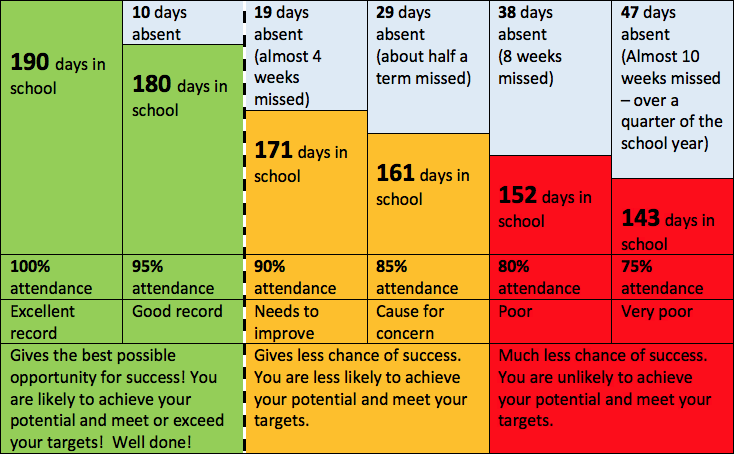Expectations
Student attendance is expected to be above 96%, which is equal to no more than 7 schools day absences each academic year.
Impact of School Absence

Reporting a Student Absence
Should your child not be able to attend school then it is important that the school is informed. This should be done before 0815hrs on each day of absence.
The absence should be reported by email or by telephone as shared below:
School Reception
email: [email protected]
Telephone: +357 2596 3888
Absence from School in Term Time
St John’s School is committed to working with parents to help every child achieve their full potential through regular school attendance. We ask that parents do not take their children out of school during term time. Understanding of our military context, we recognise there may be some extenuating reasons for school absence; amongst these are authorised absences for post operational leave purposes.
If you consider that your request warrants special consideration, you will need to complete a ‘Leave of Absence form‘ in advance.
Click here to view the ‘Leave of Absence Form’
Education Welfare Officer (EWO)
Every overseas command location has an allocated Education Welfare Officer. The team sits within the Specialist Support Services branch of Defence Children Services.
All EWOs are experienced practitioners with a range of knowledge and skills relating to education, social care, military and local authority education welfare. We are a voluntary support service, available to support children and families where any attendance related issues or concerns are raised.
Education Welfare Officer (EWO) Bekki Millar [email protected]
2024.DCS_Leaflet_Absence from School During Term Time
2024.DCS_Leaflet_Education_Welfare Guidance for Professionals
Further details regarding attendance at school can be found in the school attendance policy, a copy of which can be viewed under the policies tab of this web site.